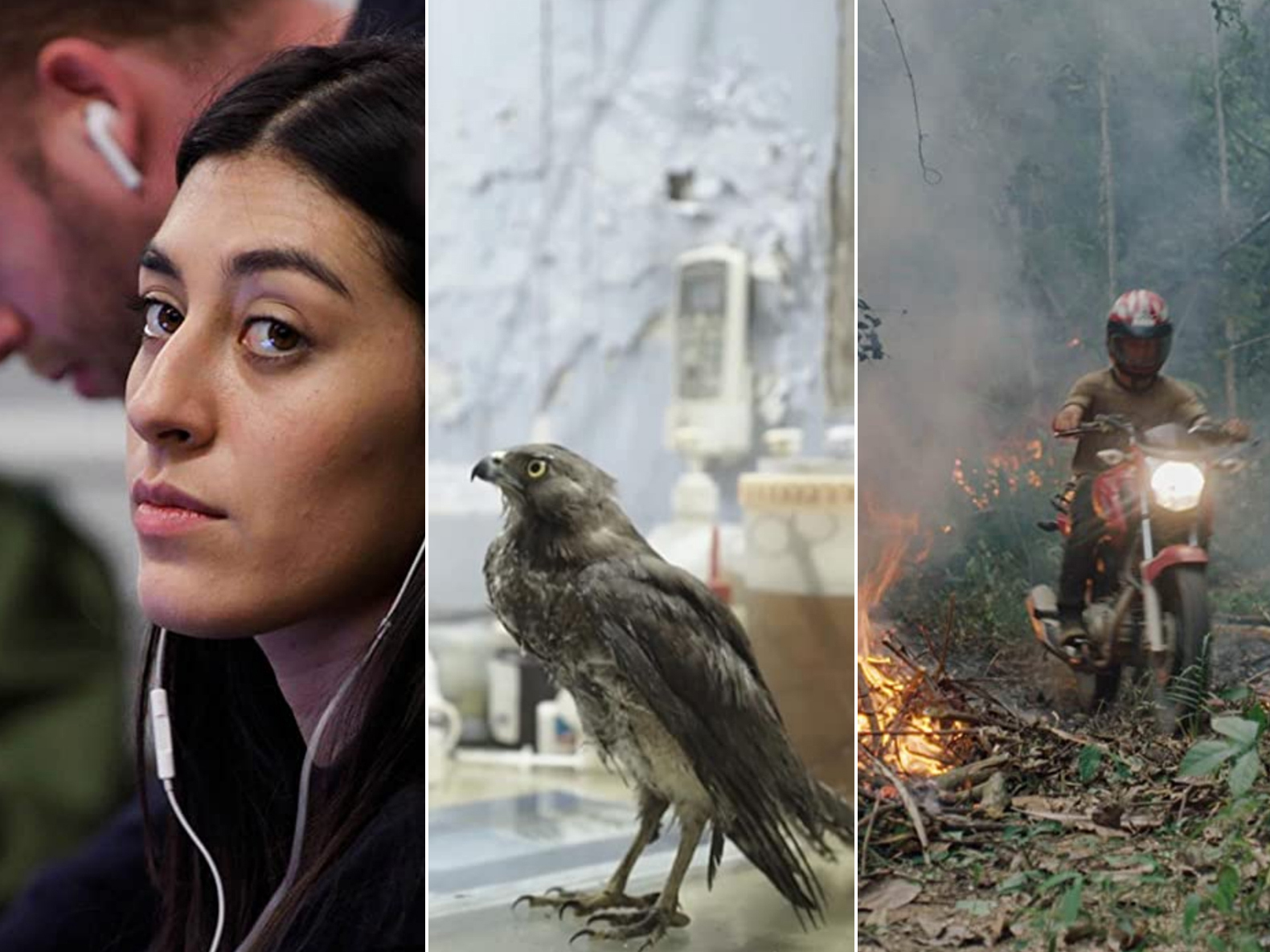
- Festivals
Sundance 2022: Festival Documentaries Showcase Environmental Stories
The Sundance Film Festival has, for many years, exhibited a dedicated environmental streak, both in its staging and its programming. From high-profile fare like An Inconvenient Truth (which used its 2006 non-competition premiere as a springboard to two eventual Oscar victories) and The Cove (U.S. Documentary Audience Award winner in 2009, and winner of Best Documentary Feature Academy Award the following year) to more recent efforts like eco-thriller Sea of Shadows (World Cinema Documentary Audience Award winner, 2019) and Honeyland (World Cinema Documentary Grand Jury Award winner, 2019). Sundance can be reliably counted upon to serve up thought-provoking nonfiction premieres.
Most years bring at least one macro-focused environmental documentary offering, which either tackles climate change more broadly or spans the entire globe in assaying one particular sub-issue, like the proliferation of plastic waste, or the impact of global warming on wildfires.
A bristling sociopolitical work, To the End, most fits this definition among this year’s crop of environmentally-themed films. Poised between clear-eyed frustration and radical empowerment, this call-to-action marks a triumphant return to Sundance (even if only in virtual form this year) for director Rachel Lears, whose Knock Down the House, about the insurgent U.S. Congressional campaigns of four women, won the festival’s U.S. Documentary Audience Award in 2019.
Tapping into largely millennial-driven energy which is fed up with the failure of institutions to meaningfully address the existential threat of climate change, To the End offers up a real-time snapshot of a movement finding its larger and louder voice.
Lears funnels her story through the work of four young leaders, all women of color: Rhiana Gunn-Wright, director of climate policy at the Roosevelt Institute; Varshini Prakash, executive director of the Sunrise Movement; Alexandra Rojas, executive director of Justice Democrats; and New York Congresswoman Alexandria Ocasio-Cortez, who in 2018 unseated 10-term incumbent and Democratic Caucus Chair Joe Crowley, in what was widely seen as the biggest upset of that election cycle and a rebuke of Democratic party complacency.
Viewers of Knock Down the House will likely remember a significant sequence from that film, in which the United Nations releases a report which asserts that humankind has until 2030 to avert the worst consequences of climate change.
It was an aha! moment which directly birthed To the End, according to Lears. “That got me thinking about making this film,” she said during a virtual Q&A session following her movie’s January 23 debut, “and following the story of the Green New Deal and the way climate justice intersects with U.S. politics because as Varshini says in the film, there is no solution to this gigantic global crisis that doesn’t have some sort of path through politics in this country.”
On the margins at this year’s Sundance Film Festival are two other very interesting and engaging documentaries which tell important, tightly focused and specific environmental stories. Director Shaunak Sen’s Hindi-language All That Breathes evocatively highlights the interconnectedness of human and animal life. Set in New Delhi, it tells the story of black kites, harbingers of good fortune and chased-away troubles in Muslim culture, falling from the sky because of pollution, and two brothers, Saud and Nadeem, who make it their mission to care for them.
The Territory breathes fuller life into the thoughtful land acknowledgment video which opens each Sundance screening, highlighting the protective struggles of indigenous people with non-native co-inhabitants.
In this particular case, director Alex Pritz’s movie tells the story of the Uru-eu-wau-wau tribe, whose rainforest dwellings in Brazil have been rapaciously exploited by local logging and mining industries, despite promises to the contrary.
With deforestation escalating and President Jair Bolsonaro’s administration duplicitous and insincere at worst and ineffective and unwilling to enforce legal agreements at best, The Territory details a group of brave indigenous leaders and activists as they set up their own media team, fight for their homeland and attempt to amplify the truth of the environmental destruction which they have witnessed.

